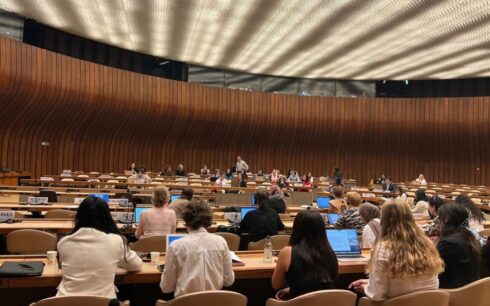A number of women’s rights activists said on Monday that the closure of dozens of women’s rights organizations and departments, including the Ministry of Women’s Affairs and the Afghanistan Independent Human Rights Commission (AIHRC), is concerning as it means further isolation for women in society.
A large number of women’s rights institutions were funded by the international community, especially by European countries, under the previous government. However, almost all have closed down or been dissolved under Taliban rule.
The ministry of women’s affairs has been closed and its headquarters in Kabul is now used by the Taliban’s vice and virtue department, while in May this year, the Taliban declared the AIHRC to be dissolved.
Sahar Sahil, a women’s rights activist, said the closure of women’s rights institutions has left women without any support mechanism and nowhere to turn in times of need.
“Over the past 14 months, we have seen hundreds of cases of violence against women in the country. Forced marriages have increased and the lack of institutions supporting women’s rights is one of the reasons for the current situation,” said Sahil.
“The future of women in Afghanistan is becoming darker every day and the pause in the international community’s direct support to Afghan women has left women with a lack of access to their basic rights,” said Tarannum Saeedi, another activist who previously worked for women’s rights organizations.
She said that the Taliban’s restrictions against women are increasing and “a big oppression will occur against Afghanistan’s women” if the international community remains silent at this point.
In the last twenty years, women in Afghanistan made great strides in many fields, but these achievements have been largely eroded following the fall of the previous government.
Husna Raufi, a Kabul resident, said she completed her master’s degree during the republic’s tenure, but added that her dreams have been squashed over the past year.
“The pause in support for women has heavily affected their situation,” she said. “These institutions were actually the facilitators and providers of work and education for women, but now, with their absence, everything has become isolated and its (Taliban’s) policy will further damage women’s roles in society.”
She said that in addition to severe financial hardships, women are struggling with other problems, including restrictions on their presence in society.
Fatima Etimadi, another activist, said the international community has left Afghan women alone at a sensitive time and that the consequences can be seen today.
“The situation of human rights, especially women’s rights in Afghanistan is worsening. Violence against women is on the rise and restrictions are still increasing. But unfortunately, the international community is silent towards them,” said Etimadi.
The Taliban has come under fire by the international community, including Islamic countries, in the past year, for imposing restrictions on women and curbing their roles in society.
But despite the criticism, the group has continued to impose rules on women, especially regarding their presence in public offices, universities and schools.





